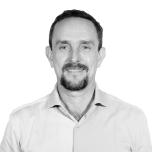Rwanda looks to market solutions to close clean cooking access gap
The lack of access to clean cooking, which affects 3 billion people, is the world’s biggest sustainable energy challenge. Indoor smoke from burning wood, charcoal and other fuels used in cooking kills several million people, mostly women and children, each year, while the use of biomass fuels contributes to environmental damage.
The number of people without clean cooking access is rising in Sub-Saharan Africa, increasing by 275 million over the last several years. There are now 860 million people in the region who do not cook cleanly, which accounts for about 70 percent of Africa’s population.
There is a need for governments and businesses to help develop bigger and sustainable markets that provide clean cooking fuels, such as liquid petroleum gas (LPG), ethanol and clean burning wood pellets, as well as clean technologies such as improved cooking stoves.
The latest Tracking SDG7: Energy Progress Report provides examples of how countries are using market-based strategies to reach more people more quickly with clean cooking fuels and technologies. Among them is Cameroon, which has doubled its clean cooking access numbers in the past decade, with 20 percent of the population now cooking with LPG stoves and a goal of reaching 50 percent by 2030. Indonesia and Bangladesh have made similar gains with LPG-focused national strategies.
At the Sustainable Energy for All Forum in Portugal in May, an effort was launched to replicate these successes in other countries. Leaders from organizations representing different cooking fuel sources – including the Global LPG Partnership and Global Alliance for Clean Cookstoves -- formed what is informally known as the “Lisbon Group” to plot strategies to build markets for clean fuels in countries where there is a political commitment to reach this goal.
Rwanda has been a key partner at the forefront of the clean cooking transition. It has already set a goal to reduce the number of households using wood and other biomass fuels from 83 percent to 42 percent by 2024. It hopes to achieve universal clean cooking access by 2030, in line with sustainable universal energy access goals under the Sustainable Development Goal 7 (SDG7).
“The government is committed to the SDGs and SDG7 and we’re well on our way to achieving universal electricity access. The bigger challenge is on clean cooking fuels and technologies,” said Germaine Kamayirese, Rwanda’s then Minister of State for Energy, Water and Sanitation in a Facebook Live interview at the SEforALL Forum.
Kamayirese said Rwanda’s strategy has two core objectives: shift urban households from traditional cooking fuels to LPG-based cooking solutions and shift rural households from wood-based cooking to clean stoves and sustainable biomass solutions.
In addition, the Global LPG Partnership convened a series of meetings in Rwanda in June to build support for distribution and retail networks to sell LPG-based cookstoves and fuels. This effort has included Rwandan companies such as SP and SafeGas.
In early November, Rwanda will host the first-ever Clean Cooking Investment Forum. It brings together key industry players and top government officials to discuss market-based solutions, with a focus on East Africa. The forum, organized by the Global Alliance for Clean Cookstoves and Energy Private Developers Rwanda and with the support of the European Union, will highlight the country’s new SEforALL Investment Prospectus, which outlines national priorities and investment opportunities on clean cooking access and other SDG7 goals.
“The solutions for clean cooking are multiple, but it has to be clean, it has to be affordable and it’s got to be a sustained market,” said SEforALL CEO Rachel Kyte, in the Facebook Live interview with Kamayirese.
The key to achieving clean cooking goals is to unlock more financing for such projects. Kyte said that Rwanda could set an example in dealing with this issue. In Rwanda, “we have a political will and we have an administrative mandate,” she said. “Now the international community has to respond and the domestic private sector has to respond.” To highlight the importance of finance in supporting faster progress on clean cooking access, Sustainable Energy for All will launch the latest Energizing Finance report in November, which offers the latest data on where finance is flowing to close electricity and clean cooking access gaps.
Produced with the Climate Policy Institute, the research provides key insights and recommendations to support governments and development finance institutions on how to increase funding and how to use it most effectively.
Photo credit: Power Africa



